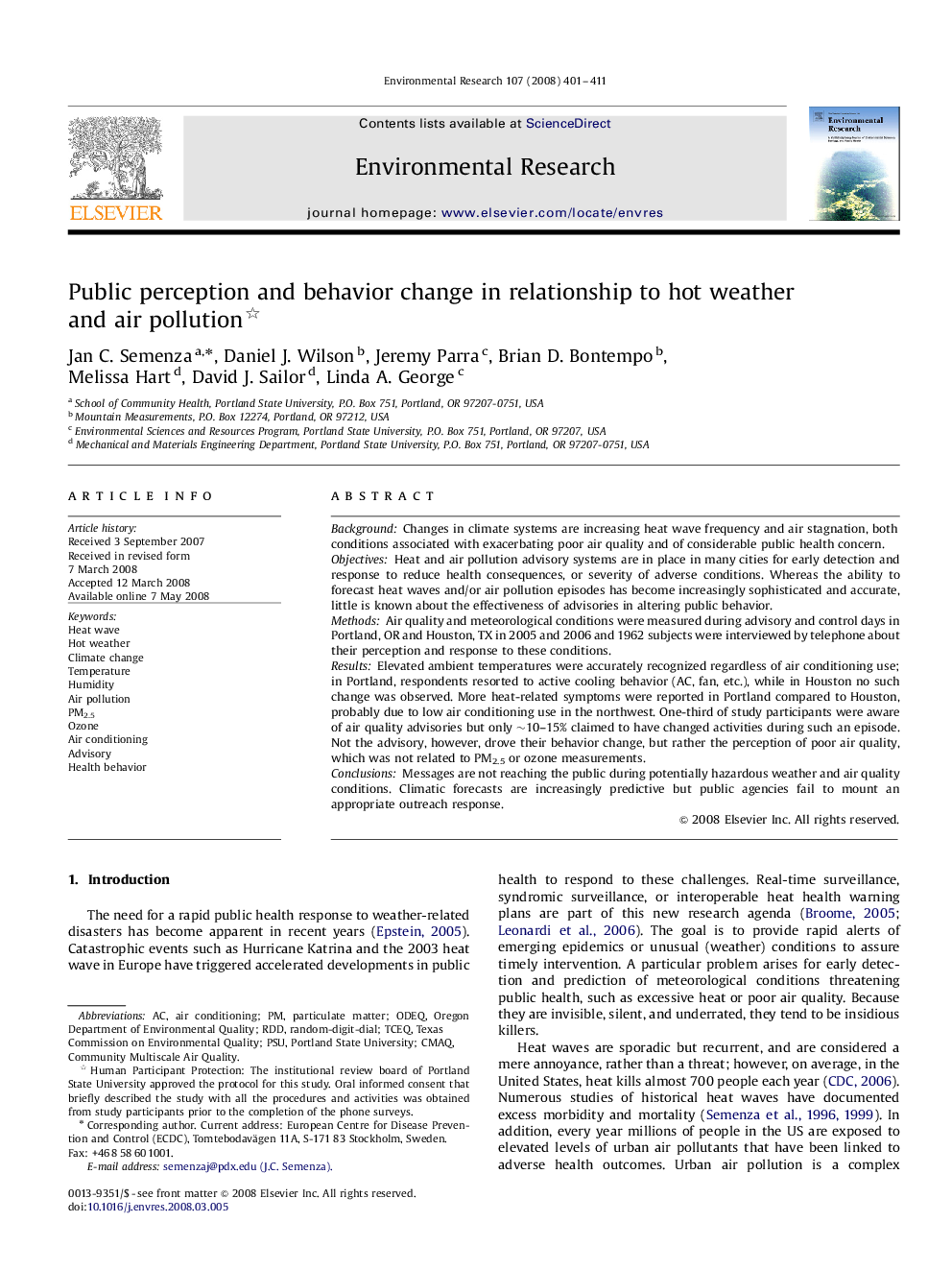| کد مقاله | کد نشریه | سال انتشار | مقاله انگلیسی | نسخه تمام متن |
|---|---|---|---|---|
| 4470655 | 1314436 | 2008 | 11 صفحه PDF | دانلود رایگان |

BackgroundChanges in climate systems are increasing heat wave frequency and air stagnation, both conditions associated with exacerbating poor air quality and of considerable public health concern.ObjectivesHeat and air pollution advisory systems are in place in many cities for early detection and response to reduce health consequences, or severity of adverse conditions. Whereas the ability to forecast heat waves and/or air pollution episodes has become increasingly sophisticated and accurate, little is known about the effectiveness of advisories in altering public behavior.MethodsAir quality and meteorological conditions were measured during advisory and control days in Portland, OR and Houston, TX in 2005 and 2006 and 1962 subjects were interviewed by telephone about their perception and response to these conditions.ResultsElevated ambient temperatures were accurately recognized regardless of air conditioning use; in Portland, respondents resorted to active cooling behavior (AC, fan, etc.), while in Houston no such change was observed. More heat-related symptoms were reported in Portland compared to Houston, probably due to low air conditioning use in the northwest. One-third of study participants were aware of air quality advisories but only ∼10–15% claimed to have changed activities during such an episode. Not the advisory, however, drove their behavior change, but rather the perception of poor air quality, which was not related to PM2.5 or ozone measurements.ConclusionsMessages are not reaching the public during potentially hazardous weather and air quality conditions. Climatic forecasts are increasingly predictive but public agencies fail to mount an appropriate outreach response.
Journal: Environmental Research - Volume 107, Issue 3, July 2008, Pages 401–411